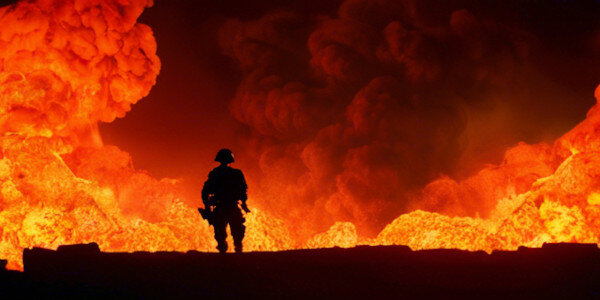In a world rife with geopolitical tensions, technological advancements, and ideological divides, the prospect of conflict remains an ever-present reality. As we dive deeper into the 21st century, the landscape of warfare continues to evolve, shaped by emerging technologies, changing societal norms, and geopolitical shifts. In this era of constant connectivity and rapid information dissemination, the concept of “War24” encapsulates the idea of perpetual conflict in our modern world, where the lines between peacetime and wartime blur, and adversaries engage in a constant battle for strategic advantage.
Gone are the days of traditional warfare confined to defined battlefields and discrete time-frames. Instead, War24 embodies the notion of continuous conflict, where the lines between peacetime and wartime blur, and adversaries engage in a constant struggle for strategic advantage. This paradigm shift challenges conventional notions of conflict resolution and underscores the need for adaptive and resilient approaches to security.
At the heart of War24 lies the intersection of technology and warfare. From cyberattacks and information warfare to drone strikes and autonomous weapons systems, the tools of modern warfare have undergone a profound transformation. The digitization of warfare has not only expanded the battlefield into the virtual realm but has also introduced new vulnerabilities and complexities.
In the era of War24, the actors involved in conflict are no longer limited to nation-states alone. Non-state actors, ranging from terrorist organizations to transnational criminal networks, wield significant influence and capabilities in shaping the course of global affairs. Their ability to exploit technological advancements and operate across borders with relative impunity poses a formidable challenge to traditional notions of state-centric security.
Moreover, the proliferation of asymmetric warfare tactics further complicates the landscape of conflict. Non-state actors leverage decentralized networks, guerrilla tactics, and unconventional strategies to challenge conventional military forces, often with devastating consequences. As such, combating these elusive adversaries requires a multifaceted approach that goes beyond traditional military means.
Amidst the technological innovations and geopolitical maneuvering, War24 raises profound ethical and moral questions. The advent of autonomous weapons systems, for instance, blurs the line between human agency and machine autonomy, raising concerns about accountability and the potential for unintended consequences. Similarly, the weaponization of information and the erosion of truth in the digital age underscore the importance of upholding democratic values and defending against disinformation campaigns.
As we grapple with these ethical dilemmas, it becomes increasingly imperative to ensure that our actions in the pursuit of security do not compromise the very principles we seek to uphold. Upholding international norms, respecting human rights, and promoting diplomatic dialogue are essential components of navigating the complexities of War24.
In the face of War24, the traditional notions of security must evolve to meet the challenges of the 21st century. Beyond military might, true security encompasses resilience, adaptability, and exclusivity. Investing in education, healthcare, and sustainable development not only fosters stability but also addresses the root causes of conflict, thereby reducing the likelihood of violence.
Moreover, fostering international cooperation and dialogue is essential in mitigating the risks of escalation and fostering trust among nations. Diplomacy, mediation, and conflict resolution mechanisms play a crucial role in de-escalating tensions and preventing conflicts from spiraling out of control.
In the era of War24, the choice is ours to make.
